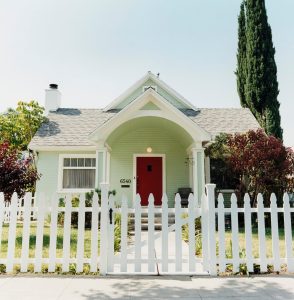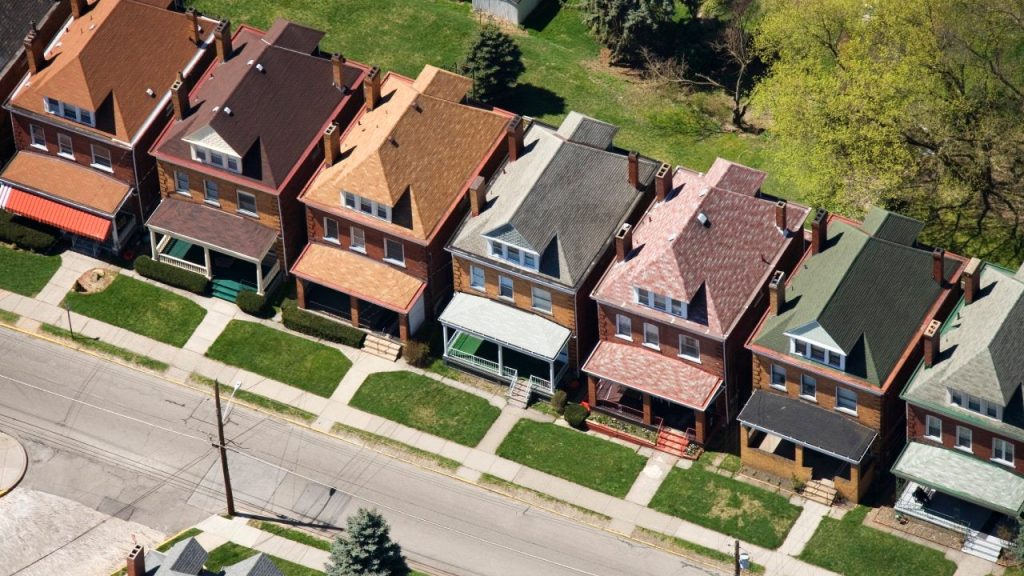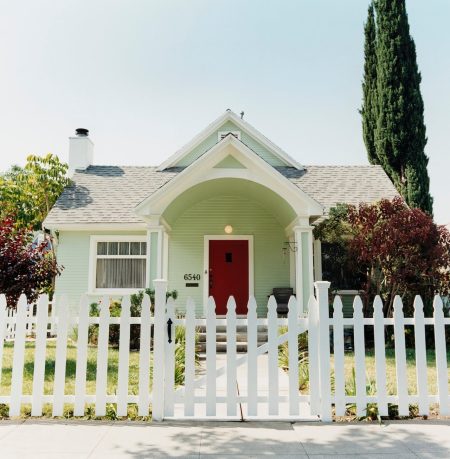Keystone Home Loan
The Keystone Home loan program serves first-time homebuyers, discharged veterans of the armed forces and buyers of homes in targeted Pennsylvania counties. To qualify, you’ll need to meet the Keystone Home Loan program’s household income and purchase price limits.
-
- Household income must fall within program limits
- Must be either a first-time buyer, a discharged veteran of the U.S. military or purchasing within a qualifying “target area”
- Property to be purchased must fall under the maximum purchase price for the program
- Acceptable credit history
- For conventional loans, you must have a minimum down payment of 3 to 5 percent, while FHA loans require at least 3.5 percent down
-
Pros
- Open to qualifying buyers who already own a property, as well as first-time buyers and/or discharged veterans
- May be used with a variety of mortgage loan products, including conventional, FHA, VA, and USDA loans
Cons
- Credit score of 660 or above required if the loan is insured by PHIF (Pennsylvania Housing Insurance Fund)
- Buyers putting less than 20 percent down will need private mortgage insurance
Keystone Government Loan (K-Gov)
The Keystone Government Loan (K-Gov) program connects homebuyers to an FHA, VA or USDA loan. You don’t have to be a first-time buyer to apply for this program, but other standard underwriting guidelines apply for each type of loan.
-
- Eligibility is determined by the lender using the guidelines of the respective federal agency (FHA, VA, USDA)
- No income or purchase price limits apply for this program
-
Pros
- Program is open to both first-time buyers and existing homeowners
- Fewer documentation requirements
Cons
- Borrowers with a credit score of 680 or below are required to complete a homebuyer education course
- Not all lenders fund FHA, VA or USDA loans, so you’ll need to make sure your selected lender will fund the loan type needed
Keystone Flex Loan
You might be eligible for one of two (or both) routes in the Keystone Flex mortgage program:
Keystone Flex mortgage with a K-FIT loan: This loan program is similar to the standard Keystone Home Loan, with the added benefit of K-FIT, or the Keystone Forgivable in Ten Years Loan. This second mortgage provides down payment and closing cost assistance up to 5 percent of either the home’s purchase price or appraised value (whichever is lower).
-
- Must meet qualifying income limits
- Home price cannot exceed the program’s purchase price limits
- Credit score of at least 660
- Homebuyer education course required for all borrowers
-
Pros
- Second mortgage debt forgiven after 10 years
- Loan assistance has no maximum dollar limit
- Open to first-time and repeat buyers
Cons
- Must contribute the lesser of $1,000 or 1 percent of the loan amount (conventional and FHA loans only)
Keystone Flex Purchase and Improvement mortgage with a K-FIT loan: This loan program provides the funds to buy and renovate a home, all in one mortgage. In addition to the funds to buy the home, you could borrow up to $30,000 more for repairs or renovations. You can also pair this mortgage with K-FIT assistance.
-
- Must meet qualifying income limits
- Home price cannot exceed the program’s purchase price limits
- Credit score of at least 660
- Homebuyer education course required for all borrowers
-
Pros
- Can be used for purchase and renovations
- Up to $30,000 for repairs and renovations
- Open to first-time and repeat buyers
Cons
- Must contribute the lesser of $1,000 or 1 percent of the loan amount (conventional and FHA loans only)
Pennsylvania down payment assistance and grants
Along with the K-FIT loans described above, PHFA also offers the following down payment assistance loans:
Keystone Advantage Assistance Loan Program
The Keystone Advantage Assistance Loan Program is a second mortgage up to 4 percent of the home price or $6,000, whichever is lower. This interest-free loan must be put toward your down payment or closing costs, and you’ll repay it over 10 years. The program can be combined with an HFA Preferred (Lo MI), Keystone Home or K-Gov first mortgage.
-
Pros
- No interest
- Minimum loan amount is $500, meaning you can apply for small levels of assistance
- May be combined with many loan types, including conventional, FHA, VA and RD (rural development) loans
Cons
- Cannot be combined with other PHFA assistance, with the exception of the ACCESS Modification Loan Program and PHFA Grant
PHFA Grant
PHFA provides $500 grants to borrowers obtaining an HFA Preferred (Lo MI) loan. This can be combined with the Keystone Advantage Assistance loan.
-
Pros
- Grant money does not need to be repaid
- Can be applied toward the down payment and closing costs of your home purchase
Cons
- Can only be used in tandem with the HFA Preferred (Lo MI) loan and Keystone Advantage Assistance loan program
HOMEstead Downpayment and Closing Cost Assistance Loan
The HOMEstead program can provide between $1,000 and $10,000 in down payment and closing cost assistance. The no-interest second mortgage loan is fully forgiven after five years.
-
Pros
- Doesn’t require repayment
- Low minimum loan amount of $1,000
- Provides up to $10,000 in down payment assistance
Cons
- Most homes built before 1978 are ineligible for this program
- Not offered in all cities and counties
- Requires a minimum down payment
ACCESS Downpayment and Closing Cost Assistance Program
The ACCESS Downpayment and Closing Cost Assistance loan is another type of no-interest second mortgage for up to $15,000. It’s available to qualified buyers living with a disability or those residing with someone living with a disability.
-
Pros
- Doesn’t require repayment as long as you use the home as your primary residence
- No price limits or first-time buyer requirements
Cons
- Only available to buyers who are also using the ACCESS Home Modification Program
- Must provide the lender with a contract for any home modifications
City-specific homebuyer assistance programs
In addition to statewide assistance programs for first-time homebuyers in Pennsylvania, there could be programs to help you buy a home in your city.
Philly First Home program
The city of Philadelphia administers this program, offering grants of up to $10,000 (or 6 percent of the home’s purchase price, whichever is lower).
-
- Counseling program required before signing an agreement of sale
- Income limits apply
- Must be first-time buyer or not have owned a home within the last three years
-
Pros
- Funds do not need to be repaid
- Funds may be used toward closing costs, down payment, or reducing loan principal
Cons
- Only single-family or duplex homes are eligible (condominiums are ineligible)
- Homes must be located within Philadelphia city limits
Homeownership First Program
Likewise, Pennsylvania first-time homebuyers living in Delaware County might be eligible for the Homeownership First Program, which provides up to $10,000 in down payment and closing cost help to low- and moderate-income borrowers.
-
- Counseling sessions must be completed prior to an agreement of sale
- Household income limits and property value limits apply
- Must be a first-time borrower, or recently legally separated (e.g. divorced or widowed)
- Sale price of home cannot exceed $290,000
-
Pros
- Assistance funds are considered an interest-free loan until the home is sold or transferred
- Homes located in designated areas may be completely forgiven if the homeowner resides there for at least five years
Cons
- Limited to 30-year, fixed-rate mortgages with loan-to-value (LTV) and point restrictions
- Properties located in and pay taxes to Chester City, Haverford Township or Upper Darby Township are ineligible
Homebuyer GAP Assistance Program
The city of Williamsport offers an assistance program in the form of a zero-percent deferred loan for up to 20 percent of a home’s purchase price to qualified applicants.
-
- Must obtain necessary funding (at least 80 percent of the home purchase price) and contribute at least 4 percent of the purchase price from your own funds
- Property must remain your primary residence for the full loan term
- HUD income limits apply
- Credit counseling class required
- Property must pass a city inspection
-
Pros
- Funds are available as a deferred-repayment loan at zero percent interest
- First-time and repeat buyers are eligible
Cons
- Limited to single-family properties in Williamsport
- Must occupy the residence for the full term of their mortgage loan to receive this assistance
Other Pennsylvania first-time homebuyer loans
A mortgage credit certificate (MCC) can reduce your federal tax bill. It can be used to claim a tax credit of up to $2,000 per year. Not every Pennsylvania homebuyer will qualify, however, and there is a fee to use the certificate. To estimate your tax credit, use PHFA’s MCC calculator.
While you’re considering local programs, check out these popular nationally available loan programs, too:
- FHA loans – If you have a less-than-stellar credit score or limited savings, consider an FHA loan. These loans are widely available, have a minimum credit score of 580 and require a down payment as little as 3.5 percent.
- VA loans – If you’re a member of the military or veteran, you could qualify for a VA loan, which requires no down payment.
- USDA loans – USDA loans don’t have a down payment requirement, but are only available to borrowers buying in a USDA-eligible rural area. You typically need a credit score of 640 or higher to qualify.
- Good Neighbor Next Door program – This HUD program has a very low down payment requirement on homes in certain areas, coupled with the ability to save 50 percent on the purchase price.
Get started
As you prepare to become a first-time homebuyer, here are some next steps:
- Do your homework. Once you’re ready to become a first-time homebuyer in Pennsylvania, your next step is to find a PHFA-approved lender.
- Work on your credit score. It’s the most important factor in determining your mortgage rate, so focus on boosting your number.
- Compare lenders. Whether or not you get a mortgage through one of these programs, it’s still important to shop around with multiple lenders in your area to find the most competitive rates. Doing so can save you tens of thousands in interest through the life of your loan.
Interested to learn more about homeownership in Pennsylvania? Here are some resources that might help:
Read the full article here
Jupiterimages/Getty Images
Pennsylvania has a number of helpful programs for first-time homebuyers — and repeat buyers — to obtain affordable mortgages. In addition, there are Pennsylvania assistance programs that can provide funds for a down payment and closing costs.
The Pennsylvania Housing Finance Agency (PHFA) partners with lenders and brokers to offer mortgages with competitive interest rates and low fees. The participating lenders take borrower applications and process the mortgages. PHFA purchases the loans after closing, and borrowers make monthly payments directly to the agency.
Pennsylvania housing statistics
- Median home price, as of February 2025: $286,600
- Median down payment, as of December 2024: $38,400
- Most affordable counties: Cameron, McKean, Clearfield, Venango, Clarion, Jefferson, Greene, Northumberland
Pennsylvania first-time homebuyer loan programs
The PHFA oversees 30-year, fixed-rate mortgage programs with affordable interest rates and fewer fees. The mortgages can be conventional, FHA, VA or USDA loans. Each program has different eligibility requirements and restrictions, including household income or home price limits.
HFA Preferred (Lo MI)
The added expense of private mortgage insurance (PMI) can be an obstacle for first-time homebuyers in Pennsylvania. Lenders typically require PMI when you make a down payment of less than 20 percent of the price of the home. The HFA Preferred (Lo MI) loan helps homebuyers with small down payments get lower-cost insurance.
-
- Household income must fall within program limits
- Must contribute at least $1,000 of your own money toward the down payment
- Acceptable credit history
- Must complete a homebuyer education course at a PHFA-approved housing counseling agency (those with a credit score of at least 680 can complete the course online)
-
Pros
- No purchase price limits
- Refinancing is eligible
- Program is open to non-first-time buyers
Cons
- Borrowers with credit scores below 680 must complete a face-to-face educational component
- Multi-unit properties are not eligible
Keystone Home Loan
The Keystone Home loan program serves first-time homebuyers, discharged veterans of the armed forces and buyers of homes in targeted Pennsylvania counties. To qualify, you’ll need to meet the Keystone Home Loan program’s household income and purchase price limits.
-
- Household income must fall within program limits
- Must be either a first-time buyer, a discharged veteran of the U.S. military or purchasing within a qualifying “target area”
- Property to be purchased must fall under the maximum purchase price for the program
- Acceptable credit history
- For conventional loans, you must have a minimum down payment of 3 to 5 percent, while FHA loans require at least 3.5 percent down
-
Pros
- Open to qualifying buyers who already own a property, as well as first-time buyers and/or discharged veterans
- May be used with a variety of mortgage loan products, including conventional, FHA, VA, and USDA loans
Cons
- Credit score of 660 or above required if the loan is insured by PHIF (Pennsylvania Housing Insurance Fund)
- Buyers putting less than 20 percent down will need private mortgage insurance
Keystone Government Loan (K-Gov)
The Keystone Government Loan (K-Gov) program connects homebuyers to an FHA, VA or USDA loan. You don’t have to be a first-time buyer to apply for this program, but other standard underwriting guidelines apply for each type of loan.
-
- Eligibility is determined by the lender using the guidelines of the respective federal agency (FHA, VA, USDA)
- No income or purchase price limits apply for this program
-
Pros
- Program is open to both first-time buyers and existing homeowners
- Fewer documentation requirements
Cons
- Borrowers with a credit score of 680 or below are required to complete a homebuyer education course
- Not all lenders fund FHA, VA or USDA loans, so you’ll need to make sure your selected lender will fund the loan type needed
Keystone Flex Loan
You might be eligible for one of two (or both) routes in the Keystone Flex mortgage program:
Keystone Flex mortgage with a K-FIT loan: This loan program is similar to the standard Keystone Home Loan, with the added benefit of K-FIT, or the Keystone Forgivable in Ten Years Loan. This second mortgage provides down payment and closing cost assistance up to 5 percent of either the home’s purchase price or appraised value (whichever is lower).
-
- Must meet qualifying income limits
- Home price cannot exceed the program’s purchase price limits
- Credit score of at least 660
- Homebuyer education course required for all borrowers
-
Pros
- Second mortgage debt forgiven after 10 years
- Loan assistance has no maximum dollar limit
- Open to first-time and repeat buyers
Cons
- Must contribute the lesser of $1,000 or 1 percent of the loan amount (conventional and FHA loans only)
Keystone Flex Purchase and Improvement mortgage with a K-FIT loan: This loan program provides the funds to buy and renovate a home, all in one mortgage. In addition to the funds to buy the home, you could borrow up to $30,000 more for repairs or renovations. You can also pair this mortgage with K-FIT assistance.
-
- Must meet qualifying income limits
- Home price cannot exceed the program’s purchase price limits
- Credit score of at least 660
- Homebuyer education course required for all borrowers
-
Pros
- Can be used for purchase and renovations
- Up to $30,000 for repairs and renovations
- Open to first-time and repeat buyers
Cons
- Must contribute the lesser of $1,000 or 1 percent of the loan amount (conventional and FHA loans only)
Pennsylvania down payment assistance and grants
Along with the K-FIT loans described above, PHFA also offers the following down payment assistance loans:
Keystone Advantage Assistance Loan Program
The Keystone Advantage Assistance Loan Program is a second mortgage up to 4 percent of the home price or $6,000, whichever is lower. This interest-free loan must be put toward your down payment or closing costs, and you’ll repay it over 10 years. The program can be combined with an HFA Preferred (Lo MI), Keystone Home or K-Gov first mortgage.
-
Pros
- No interest
- Minimum loan amount is $500, meaning you can apply for small levels of assistance
- May be combined with many loan types, including conventional, FHA, VA and RD (rural development) loans
Cons
- Cannot be combined with other PHFA assistance, with the exception of the ACCESS Modification Loan Program and PHFA Grant
PHFA Grant
PHFA provides $500 grants to borrowers obtaining an HFA Preferred (Lo MI) loan. This can be combined with the Keystone Advantage Assistance loan.
-
Pros
- Grant money does not need to be repaid
- Can be applied toward the down payment and closing costs of your home purchase
Cons
- Can only be used in tandem with the HFA Preferred (Lo MI) loan and Keystone Advantage Assistance loan program
HOMEstead Downpayment and Closing Cost Assistance Loan
The HOMEstead program can provide between $1,000 and $10,000 in down payment and closing cost assistance. The no-interest second mortgage loan is fully forgiven after five years.
-
Pros
- Doesn’t require repayment
- Low minimum loan amount of $1,000
- Provides up to $10,000 in down payment assistance
Cons
- Most homes built before 1978 are ineligible for this program
- Not offered in all cities and counties
- Requires a minimum down payment
ACCESS Downpayment and Closing Cost Assistance Program
The ACCESS Downpayment and Closing Cost Assistance loan is another type of no-interest second mortgage for up to $15,000. It’s available to qualified buyers living with a disability or those residing with someone living with a disability.
-
Pros
- Doesn’t require repayment as long as you use the home as your primary residence
- No price limits or first-time buyer requirements
Cons
- Only available to buyers who are also using the ACCESS Home Modification Program
- Must provide the lender with a contract for any home modifications
City-specific homebuyer assistance programs
In addition to statewide assistance programs for first-time homebuyers in Pennsylvania, there could be programs to help you buy a home in your city.
Philly First Home program
The city of Philadelphia administers this program, offering grants of up to $10,000 (or 6 percent of the home’s purchase price, whichever is lower).
-
- Counseling program required before signing an agreement of sale
- Income limits apply
- Must be first-time buyer or not have owned a home within the last three years
-
Pros
- Funds do not need to be repaid
- Funds may be used toward closing costs, down payment, or reducing loan principal
Cons
- Only single-family or duplex homes are eligible (condominiums are ineligible)
- Homes must be located within Philadelphia city limits
Homeownership First Program
Likewise, Pennsylvania first-time homebuyers living in Delaware County might be eligible for the Homeownership First Program, which provides up to $10,000 in down payment and closing cost help to low- and moderate-income borrowers.
-
- Counseling sessions must be completed prior to an agreement of sale
- Household income limits and property value limits apply
- Must be a first-time borrower, or recently legally separated (e.g. divorced or widowed)
- Sale price of home cannot exceed $290,000
-
Pros
- Assistance funds are considered an interest-free loan until the home is sold or transferred
- Homes located in designated areas may be completely forgiven if the homeowner resides there for at least five years
Cons
- Limited to 30-year, fixed-rate mortgages with loan-to-value (LTV) and point restrictions
- Properties located in and pay taxes to Chester City, Haverford Township or Upper Darby Township are ineligible
Homebuyer GAP Assistance Program
The city of Williamsport offers an assistance program in the form of a zero-percent deferred loan for up to 20 percent of a home’s purchase price to qualified applicants.
-
- Must obtain necessary funding (at least 80 percent of the home purchase price) and contribute at least 4 percent of the purchase price from your own funds
- Property must remain your primary residence for the full loan term
- HUD income limits apply
- Credit counseling class required
- Property must pass a city inspection
-
Pros
- Funds are available as a deferred-repayment loan at zero percent interest
- First-time and repeat buyers are eligible
Cons
- Limited to single-family properties in Williamsport
- Must occupy the residence for the full term of their mortgage loan to receive this assistance
Other Pennsylvania first-time homebuyer loans
A mortgage credit certificate (MCC) can reduce your federal tax bill. It can be used to claim a tax credit of up to $2,000 per year. Not every Pennsylvania homebuyer will qualify, however, and there is a fee to use the certificate. To estimate your tax credit, use PHFA’s MCC calculator.
While you’re considering local programs, check out these popular nationally available loan programs, too:
- FHA loans – If you have a less-than-stellar credit score or limited savings, consider an FHA loan. These loans are widely available, have a minimum credit score of 580 and require a down payment as little as 3.5 percent.
- VA loans – If you’re a member of the military or veteran, you could qualify for a VA loan, which requires no down payment.
- USDA loans – USDA loans don’t have a down payment requirement, but are only available to borrowers buying in a USDA-eligible rural area. You typically need a credit score of 640 or higher to qualify.
- Good Neighbor Next Door program – This HUD program has a very low down payment requirement on homes in certain areas, coupled with the ability to save 50 percent on the purchase price.
Get started
As you prepare to become a first-time homebuyer, here are some next steps:
- Do your homework. Once you’re ready to become a first-time homebuyer in Pennsylvania, your next step is to find a PHFA-approved lender.
- Work on your credit score. It’s the most important factor in determining your mortgage rate, so focus on boosting your number.
- Compare lenders. Whether or not you get a mortgage through one of these programs, it’s still important to shop around with multiple lenders in your area to find the most competitive rates. Doing so can save you tens of thousands in interest through the life of your loan.
Interested to learn more about homeownership in Pennsylvania? Here are some resources that might help:
Read the full article here
Jupiterimages/Getty Images
Pennsylvania has a number of helpful programs for first-time homebuyers — and repeat buyers — to obtain affordable mortgages. In addition, there are Pennsylvania assistance programs that can provide funds for a down payment and closing costs.
The Pennsylvania Housing Finance Agency (PHFA) partners with lenders and brokers to offer mortgages with competitive interest rates and low fees. The participating lenders take borrower applications and process the mortgages. PHFA purchases the loans after closing, and borrowers make monthly payments directly to the agency.
Pennsylvania housing statistics
- Median home price, as of February 2025: $286,600
- Median down payment, as of December 2024: $38,400
- Most affordable counties: Cameron, McKean, Clearfield, Venango, Clarion, Jefferson, Greene, Northumberland
Pennsylvania first-time homebuyer loan programs
The PHFA oversees 30-year, fixed-rate mortgage programs with affordable interest rates and fewer fees. The mortgages can be conventional, FHA, VA or USDA loans. Each program has different eligibility requirements and restrictions, including household income or home price limits.
HFA Preferred (Lo MI)
The added expense of private mortgage insurance (PMI) can be an obstacle for first-time homebuyers in Pennsylvania. Lenders typically require PMI when you make a down payment of less than 20 percent of the price of the home. The HFA Preferred (Lo MI) loan helps homebuyers with small down payments get lower-cost insurance.
-
- Household income must fall within program limits
- Must contribute at least $1,000 of your own money toward the down payment
- Acceptable credit history
- Must complete a homebuyer education course at a PHFA-approved housing counseling agency (those with a credit score of at least 680 can complete the course online)
-
Pros
- No purchase price limits
- Refinancing is eligible
- Program is open to non-first-time buyers
Cons
- Borrowers with credit scores below 680 must complete a face-to-face educational component
- Multi-unit properties are not eligible
Keystone Home Loan
The Keystone Home loan program serves first-time homebuyers, discharged veterans of the armed forces and buyers of homes in targeted Pennsylvania counties. To qualify, you’ll need to meet the Keystone Home Loan program’s household income and purchase price limits.
-
- Household income must fall within program limits
- Must be either a first-time buyer, a discharged veteran of the U.S. military or purchasing within a qualifying “target area”
- Property to be purchased must fall under the maximum purchase price for the program
- Acceptable credit history
- For conventional loans, you must have a minimum down payment of 3 to 5 percent, while FHA loans require at least 3.5 percent down
-
Pros
- Open to qualifying buyers who already own a property, as well as first-time buyers and/or discharged veterans
- May be used with a variety of mortgage loan products, including conventional, FHA, VA, and USDA loans
Cons
- Credit score of 660 or above required if the loan is insured by PHIF (Pennsylvania Housing Insurance Fund)
- Buyers putting less than 20 percent down will need private mortgage insurance
Keystone Government Loan (K-Gov)
The Keystone Government Loan (K-Gov) program connects homebuyers to an FHA, VA or USDA loan. You don’t have to be a first-time buyer to apply for this program, but other standard underwriting guidelines apply for each type of loan.
-
- Eligibility is determined by the lender using the guidelines of the respective federal agency (FHA, VA, USDA)
- No income or purchase price limits apply for this program
-
Pros
- Program is open to both first-time buyers and existing homeowners
- Fewer documentation requirements
Cons
- Borrowers with a credit score of 680 or below are required to complete a homebuyer education course
- Not all lenders fund FHA, VA or USDA loans, so you’ll need to make sure your selected lender will fund the loan type needed
Keystone Flex Loan
You might be eligible for one of two (or both) routes in the Keystone Flex mortgage program:
Keystone Flex mortgage with a K-FIT loan: This loan program is similar to the standard Keystone Home Loan, with the added benefit of K-FIT, or the Keystone Forgivable in Ten Years Loan. This second mortgage provides down payment and closing cost assistance up to 5 percent of either the home’s purchase price or appraised value (whichever is lower).
-
- Must meet qualifying income limits
- Home price cannot exceed the program’s purchase price limits
- Credit score of at least 660
- Homebuyer education course required for all borrowers
-
Pros
- Second mortgage debt forgiven after 10 years
- Loan assistance has no maximum dollar limit
- Open to first-time and repeat buyers
Cons
- Must contribute the lesser of $1,000 or 1 percent of the loan amount (conventional and FHA loans only)
Keystone Flex Purchase and Improvement mortgage with a K-FIT loan: This loan program provides the funds to buy and renovate a home, all in one mortgage. In addition to the funds to buy the home, you could borrow up to $30,000 more for repairs or renovations. You can also pair this mortgage with K-FIT assistance.
-
- Must meet qualifying income limits
- Home price cannot exceed the program’s purchase price limits
- Credit score of at least 660
- Homebuyer education course required for all borrowers
-
Pros
- Can be used for purchase and renovations
- Up to $30,000 for repairs and renovations
- Open to first-time and repeat buyers
Cons
- Must contribute the lesser of $1,000 or 1 percent of the loan amount (conventional and FHA loans only)
Pennsylvania down payment assistance and grants
Along with the K-FIT loans described above, PHFA also offers the following down payment assistance loans:
Keystone Advantage Assistance Loan Program
The Keystone Advantage Assistance Loan Program is a second mortgage up to 4 percent of the home price or $6,000, whichever is lower. This interest-free loan must be put toward your down payment or closing costs, and you’ll repay it over 10 years. The program can be combined with an HFA Preferred (Lo MI), Keystone Home or K-Gov first mortgage.
-
Pros
- No interest
- Minimum loan amount is $500, meaning you can apply for small levels of assistance
- May be combined with many loan types, including conventional, FHA, VA and RD (rural development) loans
Cons
- Cannot be combined with other PHFA assistance, with the exception of the ACCESS Modification Loan Program and PHFA Grant
PHFA Grant
PHFA provides $500 grants to borrowers obtaining an HFA Preferred (Lo MI) loan. This can be combined with the Keystone Advantage Assistance loan.
-
Pros
- Grant money does not need to be repaid
- Can be applied toward the down payment and closing costs of your home purchase
Cons
- Can only be used in tandem with the HFA Preferred (Lo MI) loan and Keystone Advantage Assistance loan program
HOMEstead Downpayment and Closing Cost Assistance Loan
The HOMEstead program can provide between $1,000 and $10,000 in down payment and closing cost assistance. The no-interest second mortgage loan is fully forgiven after five years.
-
Pros
- Doesn’t require repayment
- Low minimum loan amount of $1,000
- Provides up to $10,000 in down payment assistance
Cons
- Most homes built before 1978 are ineligible for this program
- Not offered in all cities and counties
- Requires a minimum down payment
ACCESS Downpayment and Closing Cost Assistance Program
The ACCESS Downpayment and Closing Cost Assistance loan is another type of no-interest second mortgage for up to $15,000. It’s available to qualified buyers living with a disability or those residing with someone living with a disability.
-
Pros
- Doesn’t require repayment as long as you use the home as your primary residence
- No price limits or first-time buyer requirements
Cons
- Only available to buyers who are also using the ACCESS Home Modification Program
- Must provide the lender with a contract for any home modifications
City-specific homebuyer assistance programs
In addition to statewide assistance programs for first-time homebuyers in Pennsylvania, there could be programs to help you buy a home in your city.
Philly First Home program
The city of Philadelphia administers this program, offering grants of up to $10,000 (or 6 percent of the home’s purchase price, whichever is lower).
-
- Counseling program required before signing an agreement of sale
- Income limits apply
- Must be first-time buyer or not have owned a home within the last three years
-
Pros
- Funds do not need to be repaid
- Funds may be used toward closing costs, down payment, or reducing loan principal
Cons
- Only single-family or duplex homes are eligible (condominiums are ineligible)
- Homes must be located within Philadelphia city limits
Homeownership First Program
Likewise, Pennsylvania first-time homebuyers living in Delaware County might be eligible for the Homeownership First Program, which provides up to $10,000 in down payment and closing cost help to low- and moderate-income borrowers.
-
- Counseling sessions must be completed prior to an agreement of sale
- Household income limits and property value limits apply
- Must be a first-time borrower, or recently legally separated (e.g. divorced or widowed)
- Sale price of home cannot exceed $290,000
-
Pros
- Assistance funds are considered an interest-free loan until the home is sold or transferred
- Homes located in designated areas may be completely forgiven if the homeowner resides there for at least five years
Cons
- Limited to 30-year, fixed-rate mortgages with loan-to-value (LTV) and point restrictions
- Properties located in and pay taxes to Chester City, Haverford Township or Upper Darby Township are ineligible
Homebuyer GAP Assistance Program
The city of Williamsport offers an assistance program in the form of a zero-percent deferred loan for up to 20 percent of a home’s purchase price to qualified applicants.
-
- Must obtain necessary funding (at least 80 percent of the home purchase price) and contribute at least 4 percent of the purchase price from your own funds
- Property must remain your primary residence for the full loan term
- HUD income limits apply
- Credit counseling class required
- Property must pass a city inspection
-
Pros
- Funds are available as a deferred-repayment loan at zero percent interest
- First-time and repeat buyers are eligible
Cons
- Limited to single-family properties in Williamsport
- Must occupy the residence for the full term of their mortgage loan to receive this assistance
Other Pennsylvania first-time homebuyer loans
A mortgage credit certificate (MCC) can reduce your federal tax bill. It can be used to claim a tax credit of up to $2,000 per year. Not every Pennsylvania homebuyer will qualify, however, and there is a fee to use the certificate. To estimate your tax credit, use PHFA’s MCC calculator.
While you’re considering local programs, check out these popular nationally available loan programs, too:
- FHA loans – If you have a less-than-stellar credit score or limited savings, consider an FHA loan. These loans are widely available, have a minimum credit score of 580 and require a down payment as little as 3.5 percent.
- VA loans – If you’re a member of the military or veteran, you could qualify for a VA loan, which requires no down payment.
- USDA loans – USDA loans don’t have a down payment requirement, but are only available to borrowers buying in a USDA-eligible rural area. You typically need a credit score of 640 or higher to qualify.
- Good Neighbor Next Door program – This HUD program has a very low down payment requirement on homes in certain areas, coupled with the ability to save 50 percent on the purchase price.
Get started
As you prepare to become a first-time homebuyer, here are some next steps:
- Do your homework. Once you’re ready to become a first-time homebuyer in Pennsylvania, your next step is to find a PHFA-approved lender.
- Work on your credit score. It’s the most important factor in determining your mortgage rate, so focus on boosting your number.
- Compare lenders. Whether or not you get a mortgage through one of these programs, it’s still important to shop around with multiple lenders in your area to find the most competitive rates. Doing so can save you tens of thousands in interest through the life of your loan.
Interested to learn more about homeownership in Pennsylvania? Here are some resources that might help:
Read the full article here










